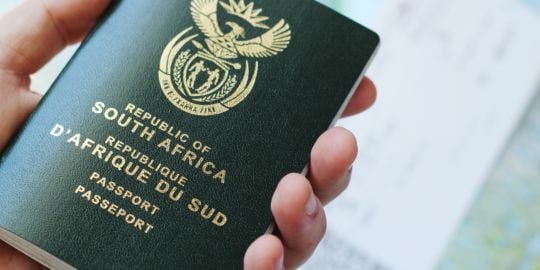The South African government has recently introduced a tax proposal regarding its current, relatively relaxed approach to taxing the income of residents that is earned abroad. However, due to some countries not taxing foreign workers or having incredibly low tax, it may seem as though the system is of great benefit to South African expats, expunging them from paying tax. It is this 'loophole' that the legislation is intended to fix.
Some argue that this unfairly forces citizens who are in effect not living in the country to pay tax towards things from which they are not benefiting. An example of this is Dubai, where there is little to no tax to pay. However, their worries may be alleviated by the fact that South Africa has a double-taxation agreement with Dubai, which means that someone cannot qualify as a resident for tax purposes in both jurisdictions. There has been some concern over the proposal for various reasons, with many seeing it as an unfair punishment on those that were perhaps unable to find work in South Africa and moved abroad as a result.
We received some feedback on the proposed amendment from Alistair - a South African expat working in international development in Addis Ababa following the relocation of his employer's offices. Even though Alistair's organisation is exempt from tax in Ethiopia, he says: “I think the proposal does make sense for anyone who will eventually move back to South Africa, as we all benefit from the products of tax such as good roads, running water, state pensions etc.."
Despite his positive perception of the proposal itself, his outlook was more overcast for its potential impact: “This will affect me directly and will impact my income. It will also impact the company, as the contract I signed was advertised at a net rate, so the company will have to pay the tax portion. This would mean I'd then become more expensive to my company and I'm not sure it would be worth their while to keep me at this extra cost.” Nonetheless, he also notes that “the Revenue Service has been one of the most efficient and best organised government agencies in the country, so I think this initiative will have the intended impact, but we will have to wait and see exactly what shape it will take.”
Alistair has spent two years in Ethiopia, and, though he does eventually intend to return to South Africa, he does not plan to do so any time soon. Whether he would return based on the proposed amendment, he reckoned not, “but it would ultimately depend on how this is implemented and how much tax I would pay. Ethiopia is a very expensive country where the cost of living is high, so, if this will impact me negatively, then I will return to SA where it is less expensive or look at moving to another country.”
Though there continues to be speculation regarding the proposal, it seems that the response from expats is, unsurprisingly, not hugely positive. However, as Alistair notes, it all depends on the final form of the amendment as to what impact it will have on South Africans living abroad. As it stands, there is still time for South Africans living and working abroad to have their voices heard regarding any changes to the current legislation.
















